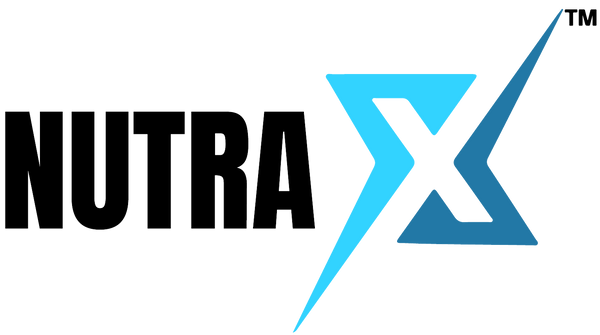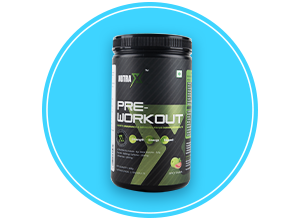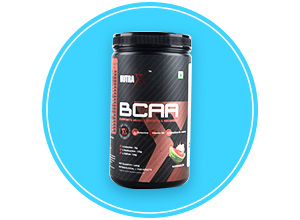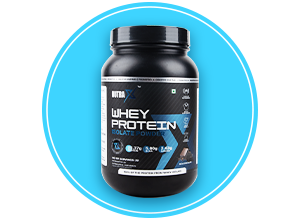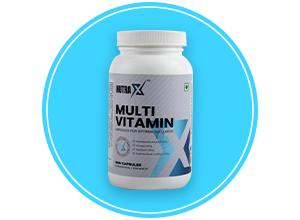
Best Multivitamin for Gym Goers in 2025 | Working Out, Bodybuilders, Atheletes
Share
Best Multivitamin for Gym Geors: Training hard at the gym? Your dedication, reps, and diet are all on point, but what about your micronutrients? When you're pushing your body to perform, you need more than just protein shakes and workouts. A multivitamin Capsule for gym goers is essential for filling nutritional gaps, boosting endurance, and accelerating recovery.
Let’s dive deep into why the right multivitamin can be a game-changer for your fitness journey.
Why Gym Enthusiasts Need Multivitamins?
Hitting the gym regularly means more sweat, more muscle activity, and more stress on your body. That also means your nutritional needs go up.
Here’s why a best multivitamin for gym workout is so important:
- Muscle Recovery: Vitamins like C, D, and E help reduce muscle soreness and inflammation post-exercise.
- Energy Production: B-complex vitamins convert food into usable energy, keeping fatigue at bay.
- Hormonal Support: Zinc and magnesium play a vital role in testosterone levels and muscle growth.
- Bone & Joint Health: Vitamin D, K2, and calcium are crucial for heavy lifters to prevent injuries.
Without these key nutrients, your performance may plateau, even with the best workout plan.
The Best Multivitamin for Bodybuilding
When it comes to building muscle and strength, some vitamins stand out:
- Vitamin B12: Boosts red blood cell production and energy levels.
- Vitamin D3: Supports testosterone levels and bone strength.
- Magnesium: Helps in muscle contraction and reduces cramps.
- Zinc: Vital for protein synthesis and recovery.
- Vitamin C & E: Antioxidants that combat oxidative stress from intense workouts.
NutraX Multivitamin capsules are packed with essential vitamins, making them best multivitamin for bodybuilders seeking optimal performance and recovery.
Choosing the Best Multivitamin for Bodybuilding
Not all supplements are made equal. The best bodybuilding multivitamin should be designed for athletes, not just general health.
Here’s what to look for:
- High-potency ingredients tailored for physical activity
- Electrolytes to support hydration and endurance
- Absorption-boosting components like black pepper extract or digestive enzymes
- Zero unnecessary fillers or artificial additives
A product like NutraX Multivitamin Capsule can serve as a comprehensive formula with a focus on athletic recovery, energy, and immunity.
Best Multivitamin for Men Athletes
Male athletes often need extra support for muscle function, hormone health, and stamina. The best multivitamin for men athletes should include:
- Zinc and magnesium for testosterone and performance
- Vitamin D for muscle strength
- Antioxidants to protect against stress from workouts
- B vitamins for energy and nerve function
Look for formulations developed specifically for active men training regularly.
Best Multivitamin for Weightlifting
As we already told you not all supplements are made equal. The best multivitamin for weightlifting should be built for athletes not just for basic health.
Here’s what to look for:
- High-potency ingredients that support strength training, recovery, and endurance
- Electrolytes like sodium, potassium, and magnesium to replenish what’s lost during intense sweat sessions
- Absorption enhancers such as black pepper extract or digestive enzymes to make sure you’re actually using what you take
- No artificial fillers or low-grade ingredients that dilute the effectiveness of the formula
A product like NutraX Multivitamin checks all these boxes delivering focused support for weightlifters through energy production, muscle recovery, immune function, and metabolic performance.
Top Benefits of Using Multivitamin for Working Out

Here’s what consistent use of a best multivitamin for gym can do:
- Faster Recovery: Reduce soreness and inflammation post-workout.
- Improved Energy: Feel less fatigue and more motivation to hit the gym.
- Better Immune Support: Stay consistent with fewer sick days.
- Enhanced Muscle Function: Vitamins help you push harder and lift more.
With so many options, finding the best multivitamin tablets for gym is key. Don’t settle for one-size-fits-all formulas, choose products that match your workout intensity and fitness goals.
FAQs: Multivitamin for Gym Geors
Q 1. Why are multivitamins important for gym enthusiasts?
Ans: Multivitamins are important for gym enthusiasts for several reasons:
Nutritional Gaps: Even with a well-balanced diet, it can be challenging to obtain all the necessary vitamins and minerals required for optimal performance and recovery. Multivitamins help fill these nutritional gaps.
Muscle Recovery: Certain vitamins and minerals, such as vitamins C, D, and E, play a crucial role in reducing muscle soreness and inflammation after intense workouts, aiding in faster recovery.
Energy Production: B-complex vitamins are essential for converting food into usable energy. They help maintain energy levels during workouts, reducing fatigue and improving overall performance.
Hormonal Support: Nutrients like zinc and magnesium are vital for maintaining healthy testosterone levels, which are important for muscle growth and overall athletic performance.
Bone and Joint Health: Vitamins D and K2, along with calcium, are crucial for maintaining bone density and joint health, especially for those engaging in heavy lifting or high-impact activities.
Immune Support: Intense training can put stress on the immune system. Multivitamins can help bolster immune function, reducing the risk of illness and allowing for more consistent training.
Boost Performance: The right combination of vitamins and minerals can improve muscle function, endurance, and overall athletic performance, allowing gym-goers to push harder and achieve their fitness goals.
In summary, multivitamins serve as a valuable tool for gym enthusiasts to ensure they are meeting their increased nutritional needs, supporting recovery, and enhancing overall performance.
Q 2. What are the top benefits of using a multivitamin for gym workouts?
Ans: Using a multivitamin for gym workouts offers several key benefits that can enhance performance and overall health. Here are the top benefits:
Faster Recovery: Multivitamins can help reduce muscle soreness and inflammation after workouts, allowing for quicker recovery times. Vitamins like C and E are particularly effective in combating oxidative stress caused by intense exercise.
Improved Energy Levels: B-complex vitamins play a crucial role in energy metabolism, helping to convert food into usable energy. This can lead to increased stamina and reduced fatigue during workouts.
Enhanced Immune Support: Regular intense training can stress the immune system. Multivitamins can provide essential nutrients that support immune function, helping to reduce the frequency of illness and keep you training consistently.
Better Muscle Function: Key vitamins and minerals, such as magnesium and potassium, are vital for muscle contraction and function. Adequate intake can improve performance and reduce the risk of cramps and injuries.
Hormonal Balance: Nutrients like zinc and vitamin D are important for maintaining healthy hormone levels, including testosterone, which is crucial for muscle growth and overall athletic performance.
Bone and Joint Health: Vitamins D and K, along with calcium, support bone density and joint health, which is especially important for those engaging in heavy lifting or high-impact activities.
Stress Reduction: Certain vitamins, such as B vitamins and vitamin C, can help the body manage stress more effectively, both physically and mentally, which can enhance focus and motivation during workouts.
Overall Nutritional Support: Multivitamins provide a broad spectrum of essential nutrients that may be lacking in the diet, ensuring that the body has the necessary building blocks for optimal health and performance.
In summary, incorporating a multivitamin into your routine can lead to improved recovery, improve energy, better immune function, and overall support for your fitness goals, making it a valuable addition to any gym enthusiast's regimen.
Q 3. What should you look for when choosing a bodybuilding multivitamin?
Ans: When choosing a bodybuilding multivitamin, it's important to consider several key factors to ensure that the supplement meets your specific needs as an athlete. Here are some essential aspects to look for:
Targeted Formulation: Look for multivitamins specifically designed for athletes or bodybuilders. These formulations often contain higher potencies of certain vitamins and minerals that support physical performance and recovery.
Key Nutrients: Ensure the multivitamin includes essential vitamins and minerals that are particularly beneficial for muscle growth and recovery, such as:
- Vitamin D: Supports bone health and testosterone levels.
- B Vitamins: Important for energy production and metabolism.
- Zinc and Magnesium: Crucial for testosterone production and muscle function.
- Vitamin C and E: Antioxidants that help reduce oxidative stress.
- Electrolytes: Consider a multivitamin that includes electrolytes (like sodium, potassium, and magnesium) to support hydration and muscle function, especially if you engage in intense workouts or sweat heavily.
Absorption Enhancers: Look for ingredients that enhance nutrient absorption, such as black pepper extract (piperine) or digestive enzymes. These can help your body utilize the vitamins and minerals more effectively.
Quality and Purity: Choose products from reputable brands that undergo third-party testing for quality and purity. This ensures that what’s on the label is actually in the product and that it’s free from harmful contaminants.
No Unnecessary Fillers: Avoid multivitamins that contain artificial additives, fillers, or unnecessary ingredients. A clean formula with minimal additives is preferable.
Dosage and Serving Size: Check the recommended dosage and serving size. Some multivitamins may require multiple pills per day, while others may provide all necessary nutrients in a single serving.
Specific Needs: Consider any personal dietary restrictions or specific health needs. For example, if you follow a vegan or vegetarian diet, look for a multivitamin that is plant-based and free from animal products.
Customer Reviews and Recommendations: Research customer reviews and seek recommendations from fitness professionals or nutritionists to find a multivitamin that has worked well for others in the bodybuilding community.
By keeping these factors in mind, you can select a bodybuilding multivitamin that effectively supports your training, recovery, and overall health.
Q 4. What key vitamins support muscle recovery and energy production?
Ans: Several key vitamins play a crucial role in supporting muscle recovery and energy production, which are essential for athletes and gym enthusiasts. Here are some of the most important ones:
Key Vitamins for Muscle Recovery:
Vitamin C:
- Role: An antioxidant that helps reduce oxidative stress and inflammation after intense workouts. It also supports collagen synthesis, which is important for muscle and joint health.
- Sources: Citrus fruits, strawberries, bell peppers, and broccoli.
Vitamin E:
- Role: Another powerful antioxidant that helps protect cells from oxidative damage during and after exercise, aiding in recovery.
- Sources: Nuts, seeds, spinach, and vegetable oils.
Vitamin D:
- Role: Supports muscle function and recovery by promoting calcium absorption for bone health. It also plays a role in reducing inflammation.
- Sources: Sunlight exposure, fatty fish, fortified dairy products, and egg yolks.
B Vitamins (B1, B2, B3, B5, B6, B7, B9, B12):
- Role: These vitamins are essential for energy metabolism. They help convert carbohydrates, fats, and proteins into usable energy, which is crucial during workouts and recovery.
- Sources: Whole grains, meat, eggs, dairy products, legumes, and leafy greens.
Key Vitamins for Energy Production:
Vitamin B1 (Thiamine):
- Role: Helps convert carbohydrates into energy and is essential for proper nerve function.
- Sources: Whole grains, pork, and legumes.
Vitamin B2 (Riboflavin):
- Role: Involved in energy production and the metabolism of fats, drugs, and steroids.
- Sources: Eggs, dairy products, green leafy vegetables, and nuts.
Vitamin B3 (Niacin):
- Role: Supports energy production by aiding in the metabolism of carbohydrates and fats.
- Sources: Meat, fish, poultry, and whole grains.
Vitamin B5 (Pantothenic Acid):
- Role: Essential for the synthesis of coenzyme A, which is involved in fatty acid metabolism and energy production.
- Sources: Chicken, beef, potatoes, oats, and tomatoes.
Vitamin B6 (Pyridoxine):
- Role: Important for protein metabolism and the production of neurotransmitters, which can affect energy levels and mood.
- Sources: Fish, beef liver, potatoes, and non-citrus fruits.
Vitamin B12 (Cobalamin):
Role: Crucial for red blood cell production and energy metabolism. It helps transport oxygen to muscles, enhancing endurance.
Sources: Meat, fish, dairy products, and fortified cereals.
By Including these vitamins into your diet can quickly improve muscle recovery and energy production, helping you perform better in the gym and recover more effectively after workouts. A balanced diet rich in these nutrients, along with a well-formulated multivitamin, can support your fitness goals.
Final Thoughts
Training is just one part of the equation. Without the right nutrients, progress slows, recovery stalls, and fatigue kicks in. A well-formulated multivitamin for gym goers bridges the gap between hard work and real results.
Whether you're building mass, cutting fat, or simply aiming to stay fit, support your body from the inside out with the right micronutrients.
